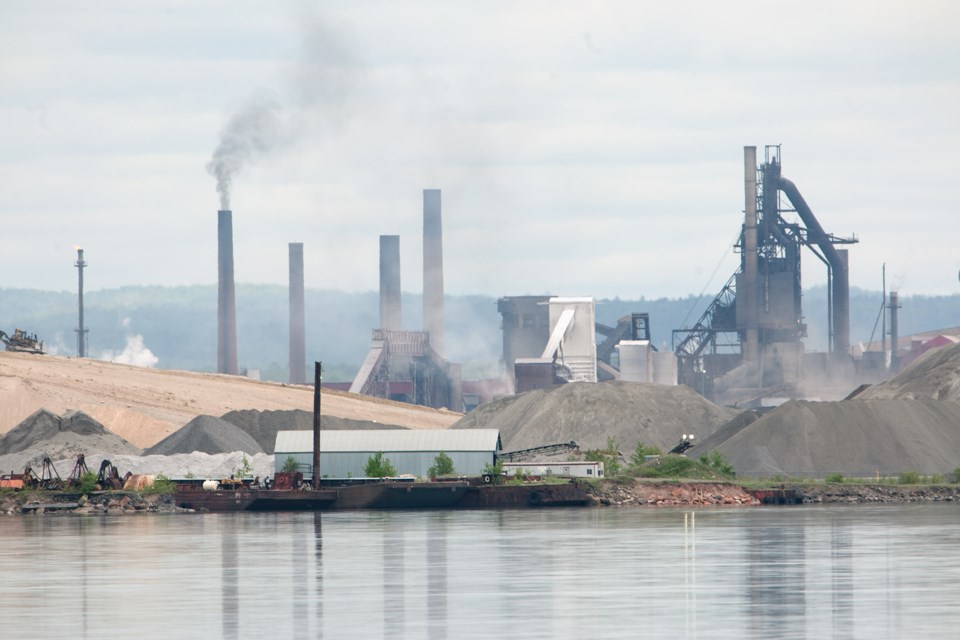The Sault Ste. Marie Chamber of Commerce (SSMCOC) says the federal carbon tax - which went into effect for Ontario, New Brunswick, Manitoba and Saskatchewan April 1 - will ultimately stifle businesses locally.
Those four holdout provinces had the tax imposed on them by Ottawa after they chose to opt out of implementing their own pricing schemes for carbon emissions.
“There’s going to be accumulative burden placed on business, not only just from a cost perspective, but also from regulatory burden,” said SSMCOC Chief Executive Officer Rory Ring.
Residents of provinces under the newly-implemented federal carbon tax - which Ottawa says will put a price on pollution in order to discourage emissions - will get rebates on their income tax returns, starting at $128 annually, with increases in store for people with spouses or dependents at home.
Details about a program to rebate some of the increased costs faced by small and medium-sized businesses haven’t been revealed by the federal government.
The federal carbon tax is $20 a tonne for this year, with increases of $10 annually until the tax reaches $50 a tonne in April 2022.
Ring says that the upfront costs to companies that produce goods will take away from their ability to invest in capital expansion and carbon reducing programs, in addition to driving up costs for materials and the transportation of goods.
These things, Ring says, are essential for industries in order to remain competitive.
“That market is in such infancy, that there may not be enough credits or offsets available for those particular industries so that it becomes a very significant financial burden up front, because the government has regulated that only 75 per cent of the carbon licences that they can purchase can be acquired by credits or offsets, and the rest have to paid for in cash,” Ring told SooToday. “So right away, there’s going to be an upfront cost to companies that produce concrete, produce steel, the mining industry.”
Upfront costs faced by companies, combined with regulatory burdens, will eventually trickle down to local companies like Tenaris and Algoma Steel, Ring says.
“There really isn’t as much natural gas supply as there is potential demand, so we need to ensure that there’s federally a policy of ensuring that new energy pipelines are available in Canada, that the regulatory burden in getting those pipelines and natural gas to market is not so burdensome that the investments do not happen,” said Ring. “We’re seeing that, obviously, in Alberta at the moment.”
“If the Alberta market is shrinking, it affects dramatically a company like Tenaris, it affects companies like Algoma Steel,” he continued. “Now we have the extra whammy effect...of the tariffs and trade barriers that have been imposed by the United States.”
Ontario Premier Doug Ford - whose government will be fighting the federal carbon tax later this month - has said there’s no reason to believe that Canadians will recoup the cost of the tax.
The Green Party of Ontario, meanwhile, has issued a statement accusing Ford of using a ‘taxpayer-funded smear campaign.’
“Climate change is nature’s tax on everything, costing Ontarians $1.2 billion in insurable losses last year alone,” reads the statement. “The premier’s actions not only threaten the livability of the planet, Ford is also doing damage to our economy. Ripping up clean energy contracts, attacking electric vehicles and making pollution free tells the world that Ontario is closed for business in the $26-trillion clean economy.”
The leader of the local chamber of commerce, however, doesn’t believe the federal carbon tax was well thought out.
Ring says that the chamber hasn't reached out to local business or Sault Ste. Marie MP Terry Sheehan about the potential impacts of the carbon tax due to on ongoing 'reconfiguration' at SSMCOC that has seen cuts to its staff.
“While there’s a recognition that we need to be looking at carbon footprint, we don’t believe that the approach is very thought out at this point in time, and it needs to be more robust in terms of how it protects our economy, how it protects consumers from the rising costs of goods,” Ring said.
The starting rate of the tax adds 4.4 cents to the price of a litre of gas, roughly four cents to a cubic metre of natural gas, and will also increase costs for propane, butane and aviation fuel.
- with files from The Canadian Press
